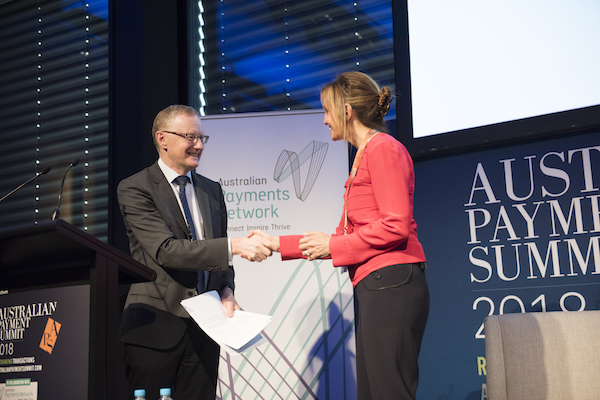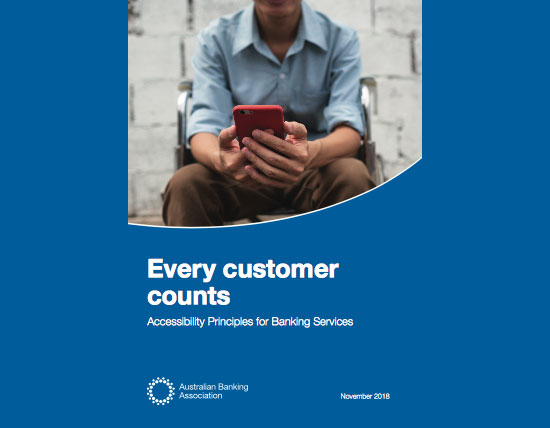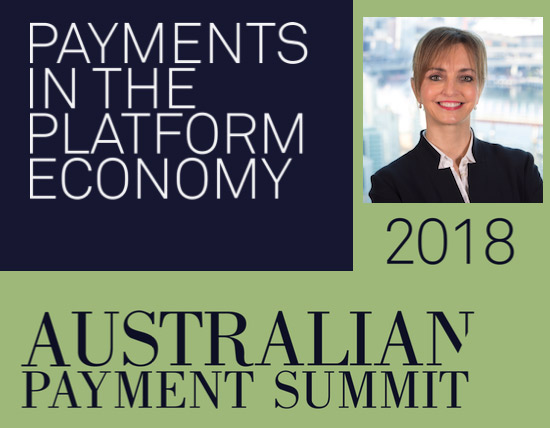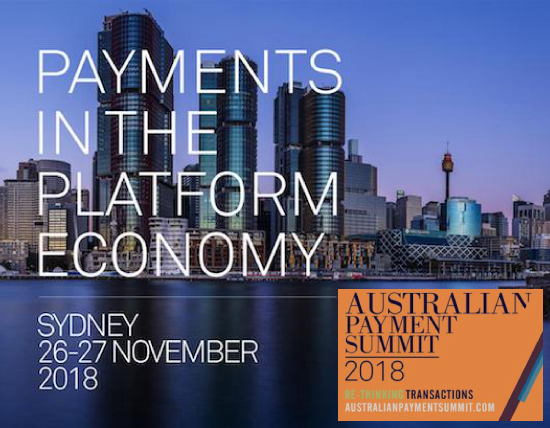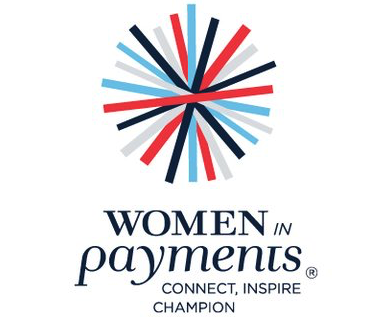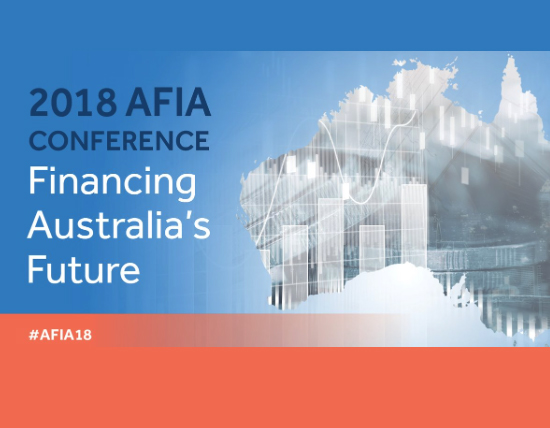
'Times are a changing'
This is my last communication before departing at the end of February. I can hardly believe it has been two and a half years since I took up the role of CEO of AusPayNet. It’s been an honour and privilege to serve the industry, regulators, Board and staff in this time. While I’m proud and humbled to have played a leadership role, our success continues to be all about industry collaboration.
Reflecting on the past, I’m reminded of the concept of creative destruction - the process where new models supplant the old, simply by being better. The concept is as relevant to payments as it is to the capitalist economic system. Both involve the process of innovation, where new, improved ideas and technology advance and replace the old.
A recent trip to India confirmed to me how rapidly new advances in payments are overtaking old. And we are no different in Australia. Indeed, in many ways Australia is at the forefront of this wave of creative destruction and the pace and scale of our transformation is only increasing with advances in technology and data, regulation and consumer preferences.
As I reflect on the progress our industry has made over the past couple of years, I’m reminded of what struck me when I first joined the AusPayNet team. Australia’s payments economy is advanced in comparable terms and well down the digital path. We have the highest contactless penetration in the world and nine out of ten mobile phones are smartphones. While we are not cashless canaries in the mine like Sweden and Norway, we are certainly on the leading edge of the global digital economy.
To grasp the pace of digital transformation here, consider the agenda our industry has delivered on recently. The NPP was launched in February last year, Open Loop transit pilots have been expanded, a digital identity trust framework is well advanced, the industry has collaborated to develop a card-not-present fraud framework, and we have created a regional payments think tank (P7) to advance common standards and explore interoperability in Asia and the Pacific Rim.
The landscape is shifting and the payments world we know today may not be recognisable in a decade’s time. Australia’s world-class payments system – including the regulations governing it – must continue to evolve and meet our future needs. At an industry level, if we are to support the process of creative destruction, we need to regularly update the payments roadmap, adapt our rules to be more principles-based, and embrace emerging technologies.
As I look back on my time at AusPayNet, I’m profoundly grateful to our members and stakeholders, regulators, the Board and my team for your collaboration and support in repositioning and transforming self-regulation of payments in Australia. I am grateful for having worked with some of the country’s pre-eminent leaders from across the payments landscape and I look forward to contributing to industry developments from a different standpoint.
AusPayNet Events
Scroll down to continue
Australian Payments Summit
Our second Australian Payment Summit, held at the end of November 2018, brought together some 250 participants, including 50 local and international presenters, from across the payments world including financial institutions, fintechs, service providers, regulators and government.
We were delighted to have Philip Lowe, Governor of the Reserve Bank of Australia, deliver the opening keynote address on A Journey Towards a Near Cashless Payments System. The Governor’s address covered a broad range of topics, including the clear shift to electronic payments, the declining role of cash and cheques, and addressing card-not-present fraud and digital identity. Audio of his speech is available here.
Over the two-days, speakers and panellists explored a range of topics related to the Summit’s theme, "Payments in the Platform Economy". Common themes to emerge included improving the customer experience, open banking, trust, and competition and innovation. For example, voice was considered a driver of convenience. For insights into voice opportunities and challenges, read our interview with Ray Guy of Alkira Software, here.
For a summary of the key takeaways from our 2018 Australian Payment Summit access our recent blog post below.
Please get in touch if you would like more information about our events.
Selected Articles See All >
Industry News

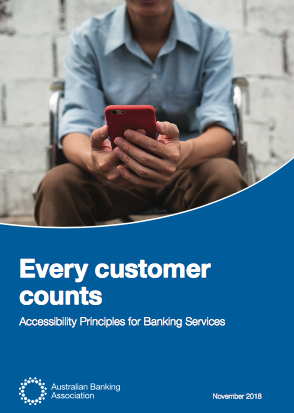
Version 3 of the framework for contactless payments is now available.
Through Payments Think Tank – P7, we are participating in two committees in the Asia Pacific region.
Scroll down to continue
Mitigating card-not-present (CNP) Fraud
We are pleased to announce that the industry CNP Fraud Mitigation Framework has been finalised, subject to completion of legal formalities.
As reported previously, CNP fraud now represents almost 85% of all card fraud and costs the e-commerce industry close to half a billion dollars each year. The Framework is designed to reduce CNP fraud as well as to build consumer trust and support continued growth in e-commerce.
We have been working with our Members, merchants, the Reserve Bank of Australia, gateways and payment service providers to define an approach to reduce the level of CNP fraud in Australia. In 2018, we led a successful industry consultation that has resulted in this framework and a draft implementation timeline.
It is proposed that the first reporting obligation for issuers and acquirers will be in July 2019, covering the period April to June 2019.
Further detail on the Framework and the implementation timeline is available here.
Accessibility
In November 2018, the Australian Banking Association (ABA), released new accessibility principles for the banking industry.
The new principles outlined in – Every Customer Counts: Accessibility Principles for Banking Services – will help ensure that the millions of Australians living with disability, "can access and conduct their banking safely and securely".
Through our Issuers and Acquirers Forum, we are currently working to produce more detailed accessibility guidelines for point-of-sale devices to underpin the Accessibility Principles in this area.
An overview of the Accessibility Principles along with our role in developing the accessibility guidelines for point-of-sale devices is available in a recent blog post.
Open Loop Transport Framework Update
Recently, we agreed version 3 of AusPayNet’s Open Loop Transport Payments Framework with card issuers, card schemes, and Australian transport authorities and operators.
The Framework is designed to ensure a consistent consumer open loop ticketing experience when customers pay for transit using their contactless debit or credit card. It is available to transport authorities and their partners to help with the implementation of open loop transport.
The new version adds eftpos Payment’s transport rules to those of American Express, Mastercard and Visa. It also adds considerations relating to account-based ticketing – enabling travel concessions and discounts to be applied in open loop transport.
Further detail on the framework is available here.
Securing payment data globally
In January 2019, AusPayNet was selected as one of 29 board members to join the Board of Advisors of the Payment Card Industry Security Standards Council (PCI SSC) in its efforts to secure payment data globally. The Board of Advisors represents PCI SSC Participating Organizations worldwide to ensure global industry involvement in the development of PCI Security Standards and programs.
As AusPayNet’s representative on the Board of Advisors, our Chief Operating Officer, Andy White, has the opportunity to bring our Members' perspective as well as broader Australian industry insight to PCI SSC plans and projects. He will join representatives from some of the world’s leading companies from all sectors in the payments space including from vendors to merchants, from processors to banks, and other relevant organisations.
PCI SSC International Director Jeremy King said, “We’re pleased to have AusPayNet on the PCI SSC Board of Advisors to provide critical insights and help us build on the great efforts that are already being done to increase payment security globally.”
P7 - Two new committees for Education and Standards
In our last issue, we covered the recent meeting in Malaysia of P7 - a payments Think Tank we co-created in December 2017 to provide a forum for collaboration in the Asia Pacific region. At the meeting, members agreed to form working groups to focus on the development of standards for emerging technologies and the development of an international education program in payments.
AusPayNet has since set-up a P7 standards sub-committee and is leading work on exploring the harmonisation of standards to support interoperability across regions. We are also participating on the new P7 education sub-committee headed-up by Payments Canada, which is creating an international payments course.
We look forward to providing updates on these initiatives as they progress during the year. Please get in touch if you would like to discuss our work in these areas.
Australian Payments Council
The Australian Payments Council (APC) Community came together for its annual meeting on 19 December 2018. Community members from across the payments landscape discussed the range of topics progressed by the APC during the course of the year.
Consultation on the Strategic Agenda for Payments
APC Chairman Robert Milliner provided an overview of some of the drivers that are changing the payments landscape and outlined the process for the public consultation on the strategic agenda for payments. In addition to inviting written responses, the APC will hold a series of one-on-one meetings with stakeholders, as well as group workshops in Sydney and Melbourne. The consultation was launched on 22 January 2019 and more information on the APC consultation can be found here.
Year in Review
Lindsay Boulton, Assistant Governor of the Reserve Bank of Australia provided an overview of the APC’s work during 2018. Highlights included an update on the changing payments mix, as well as digital identity and cyber security.
More information on the community meeting is available here.
Membership Update
Our members work collaboratively on payments system improvements and have the opportunity to help shape our payments strategy and policy objectives.
The diversity and number of organisations joining our network continue to grow.
During the last quarter, we welcomed the following new members:
• Google Payment Australia Pty Ltd as an Operator Member
• Royal Australian Mint as an Operator Member
• Fuji Xerox Businessforce Pty Ltd as a COIN Member
For further information on membership please contact us.
Regulatory Round-up
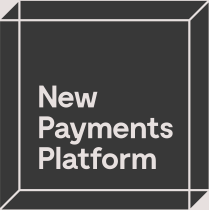
We attended The Council of Financial Regulators industry roundtable in November 2018.
Scroll down to continue
NPP Access Regime Consultation
In November 2018, the Reserve Bank of Australia (RBA) consulted on the functionality of, and access to, the New Payments Platform (NPP). We were pleased to make a submission.
AusPayNet played a key role in the creation of the NPP and established NPP Australia Ltd (NPPA) as a separate corporate entity in late 2014 to oversee the NPP’s build and operation. The NPP is the result of a collaborative industry initiative designed to meet the needs of the digital economy.
Our submission made the following key points:
- Since its inception, the NPP continues to grow its share of payments volume at significant scale.
- A number of participants (large and small) are already, or are planning to, connect to the platform.
- There are multiple ways for participants to connect.
- NPPA is already in the process of building further functionality and capability.
It also highlighted that it is important to let the NPP mature so that it can deliver on its objective of promoting access and competition.
The RBA’s consultation, and our submission are available here.
Stored Value Facilities
In October 2018, The Council of Financial Regulators (CFR) published an Issues Paper, Review of Retail Payments Regulation. One of the key aims was to identify opportunities to simplify the regulatory framework for stored value facilities – SVFs, currently known as purchased payment facilities or PPFs – so that it does not pose an undue obstacle to innovation and competition.
This was a recommendation of both the 2014 Financial Systems Inquiry and the 2018 Productivity Commission inquiry, Competition in the Australian Financial System. Our submission noted can be found here.
Industry Workshop
The complexity of the debate was highlighted at an industry roundtable, held by the CFR on 2 November 2018, which we attended. For example, some of the discussion related to overseas models and challenges for an Australian framework. It was acknowledged that the current framework was developed for a different time and no longer suited the needs of payments, and noted that the terminology – SVFs and PPFs – was unhelpful.
Four themes and questions emerged from the roundtable:
- There are a wide range of business models in this space covering niche product offerings.
- The current PPF regulatory framework ‘cliff’ is not ideal (referring to the ASIC/APRA oversight and associated obligations).
- How to best approach defining thresholds in managing risk, is it monetary-based or activity-based?
- How can consumer protections be incorporated into any new regulatory framework?
Next steps
Based on the consultation, recommendations will be developed in early 2019 for agreement by the CFR.
The new framework will require further discussion with APRA and ASIC, as they will regulate the sector. It is expected that these agencies will consult on any changes. The resulting reforms may also require legislative change, which will be prepared by Treasury.


